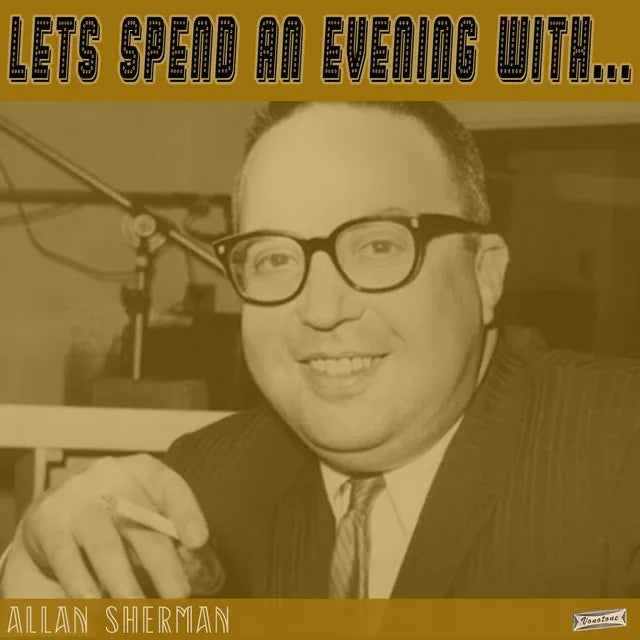Allan Sherman Biography
Who is Allan Sherman? A Brief Career Overview
Allan Sherman, born Allan Copelon, was a true pioneer in the realm of musical parody--a genre that blends humor with musical artistry to create entertaining and unforgettable tunes. An American singer, songwriter, and television producer, Sherman is often hailed as the foremost musical humorist of his time. Renowned for his clever and comedic takes on popular songs, he carved out a unique niche in the early 1960s, captivating audiences with playful lyrics and catchy melodies. His genre-spanning music draws from folk, comedy, and pop traditions, reflecting a rich tapestry of influences that appealed to diverse listeners.
Launching into the limelight with his sensational debut album, "My Son, the Folk Singer," Sherman quickly became a household name, resonating with fans across the nation. His most significant hit, "Hello Muddah, Hello Fadduh," remains a classic, cleverly narrating a child's summer camp experiences against the backdrop of Ponchielli's "Dance of the Hours." Sherman's innovative parodies not only entertained but also shaped the comedic landscape of music, solidifying his legacy among collectors and vinyl enthusiasts alike. As we dive deeper into his life and work, you'll discover an artist whose impact continues to influence generations.
Allan Sherman's Early Life and Background
Allan Sherman entered the world on November 30, 1924, in Chicago, Illinois. Born to Jewish parents Percy Copelon and Rose Sherman, his formative years were marked by a rich cultural heritage that would shape his artistic voice. Unfortunately, his parents' divorce when he was just seven set the stage for a childhood filled with transitions; he would attend an astonishing 21 different public schools across Chicago, New York, Los Angeles, and Miami due to frequent relocations.
This constant moving didn't deter his creativity. Music became a refuge; Allan began experimenting with songwriting and performing from a young age. He graduated from Fairfax High School in Los Angeles in 1941 and briefly attended the University of Illinois, where he contributed to the university's humor column--preparing the ground for his comedic career. His early exposure to music and comedy laid the foundation for a vibrant artistic journey that would later be expressed through the warmth and charm of vinyl records.
The Musical Influences That Shaped Allan Sherman's Sound
Allan Sherman's sound was a delightful tapestry of influences, drawing inspiration from the realms of folk and classical music, framed within a uniquely humorous perspective. He was influenced by the likes of Harry Belafonte and Peter, Paul and Mary, whose catchy melodies and storytelling approach resonated with him in crafting his parodies. Sherman's parodic humor was not just limited to folk; it often blended the luxuries of classical compositions, creating a delightful synergy in his music.
One cannot discuss Allan Sherman's influences without mentioning his early love for vinyl records. As a child, he was captivated by the turntable that spun melodies, fostering a relationship with music that would lead to a lifelong passion for collecting records. Among his treasured vinyl finds were classic folk albums that inspired his own innovative takes on familiar tunes, instilling in him the belief that music could entertain while also invoking laughter.
How Allan Sherman Entered the Music Industry
Allan Sherman's journey into the music industry was neither straightforward nor devoid of challenges. Initially trying to establish a performing career in the 1950s, he recorded a duo with comedian Sylvia Froos titled "A Satchel and a Seck" to little fanfare. Following this, he ventured into television, creating "I've Got a Secret" and producing segments for iconic shows like The Steve Allen Show, a stint that temporarily steered him away from his musical aspirations.
However, it was through a serendipitous call from George Burns that he finally caught the break he needed. Signed by Warner Bros., Sherman released his groundbreaking album, "My Son, the Folk Singer" in 1962. This comic collection of parodies resonated profoundly, quickly becoming a bestseller and a classic in the vinyl community. The production techniques and collaborations he explored in creating this album highlighted his adaptability, setting the stage for a promising career ahead.
Allan Sherman's Breakthrough and Rise to Fame
The year 1962 marked a seismic shift in Allan Sherman's career. His album "My Son, the Folk Singer" topped the charts, becoming the fastest-selling album at the time, thanks in part to the exposure garnered after President John F. Kennedy was noted singing one of the tracks in public--demonstrating the album's broad appeal. Following this, Sherman released subsequent albums, including "My Son, the Celebrity" which also soared in popularity.
His crowning success came with "My Son, the Nut" in 1963, featuring the now-legendary track "Hello Muddah, Hello Fadduh." This novelty hit showcased Sherman's prowess in cleverly fusing humor with beloved musical elements, earning a spot in the Top 10 of the Billboard Hot 100. Vinyl collectors clamored to get their hands on these albums, relishing the high-quality pressings that captured Sherman's lively performances. As media appearances followed, Sherman seized opportunities across television, which further elevated his status, ensuring he remained a celebrated figure in both music and comedy.
How Personal Life Shaped Allan Sherman's Music
Delving into Allan Sherman's personal life reveals a canvas rich in emotional depth. Navigating through challenges, including his parents' divorce, addiction struggles, and health issues, Sherman often transmuted pain into artful expression through his music. His lyrics reflected autobiographical elements, touching on themes of family, identity, and the absurdities of life found in everyday experiences.
Moreover, his relationship with his children influenced his work, particularly as he explored themes that resonated with family dynamics. As he faced public scrutiny and personal battles, the warmth of friendship and community played pivotal roles in his creative process. While he championed laughter and joy through humor, his experiences enriched the tapestries of his songs, endearing him to countless fans and lending a heartfelt connectivity to his vinyl releases.




























